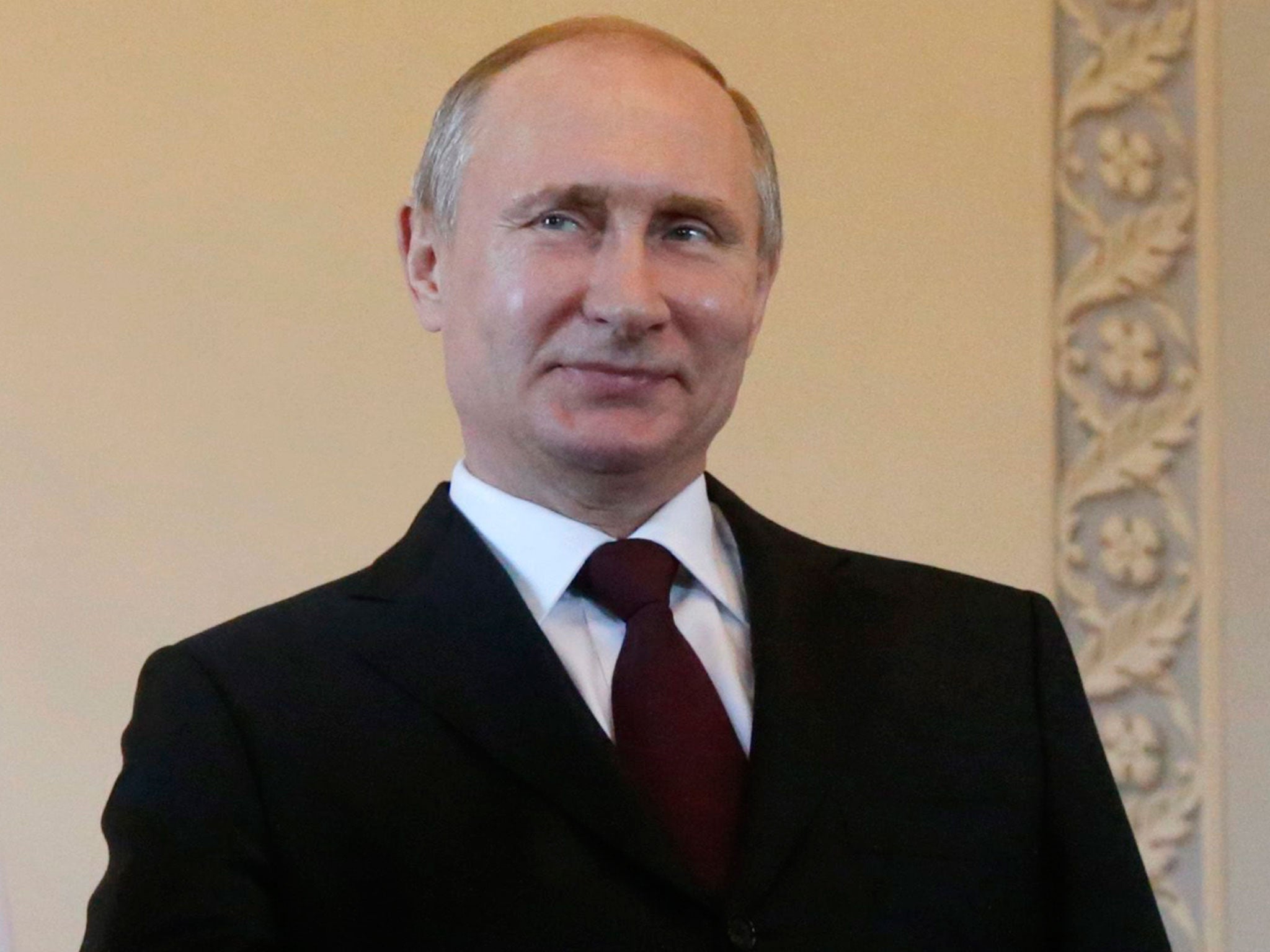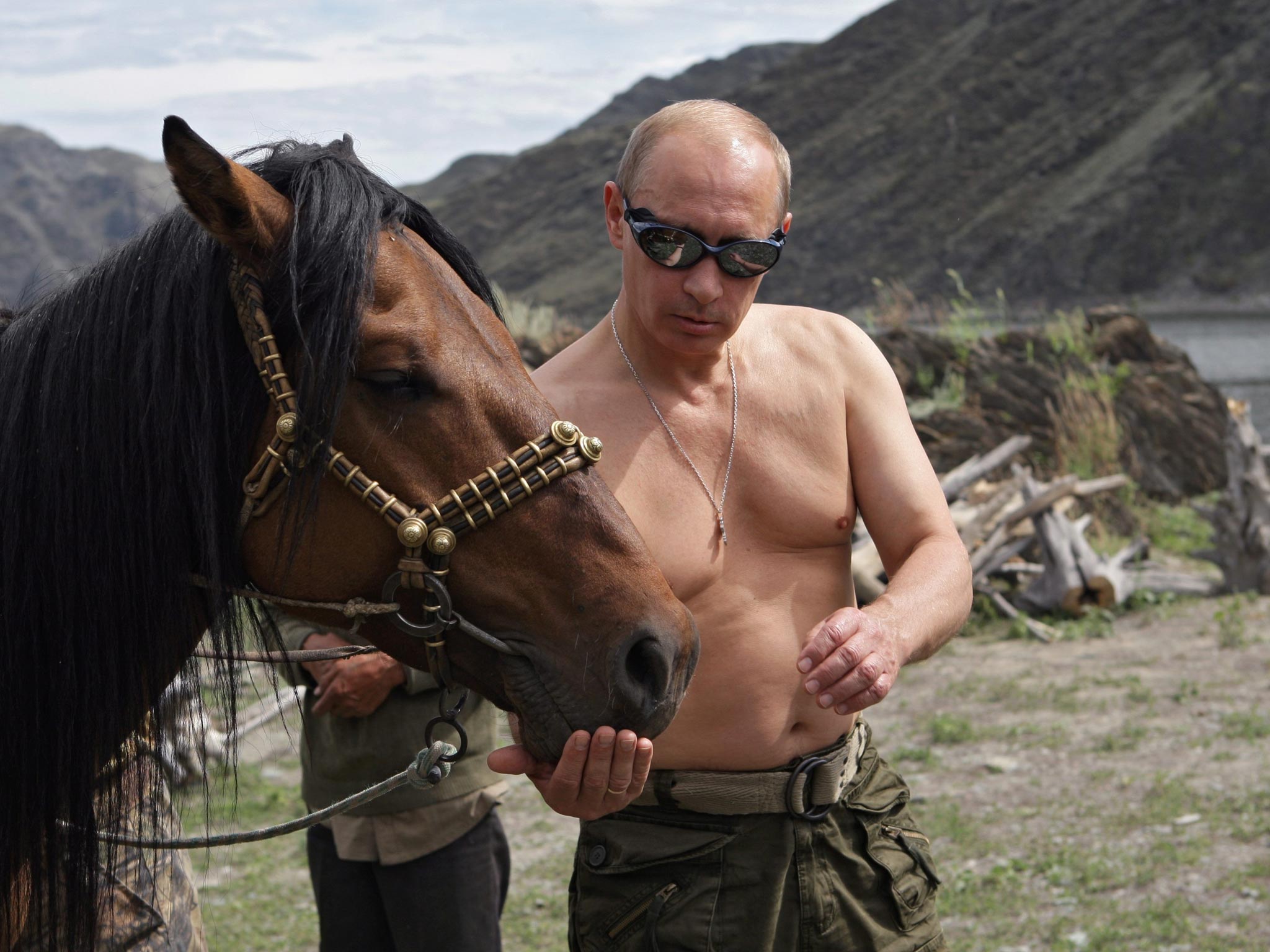Vladimir Putin's disappearance is only strange if you're used to the prying eyes of the Western media
The president's 11-day absence isn't as unusual as most people seem to think

Your support helps us to tell the story
From reproductive rights to climate change to Big Tech, The Independent is on the ground when the story is developing. Whether it's investigating the financials of Elon Musk's pro-Trump PAC or producing our latest documentary, 'The A Word', which shines a light on the American women fighting for reproductive rights, we know how important it is to parse out the facts from the messaging.
At such a critical moment in US history, we need reporters on the ground. Your donation allows us to keep sending journalists to speak to both sides of the story.
The Independent is trusted by Americans across the entire political spectrum. And unlike many other quality news outlets, we choose not to lock Americans out of our reporting and analysis with paywalls. We believe quality journalism should be available to everyone, paid for by those who can afford it.
Your support makes all the difference.Putin is now such a Bond villain cliché in the Western imagination that his every move is a source of titillation to us. His disappearance from the airwaves for an eleven day stretch sent the internet off into a frenzy of speculation. Popular theories included an attempted palace coup, the birth of his secret love-child, or a bad dose of the flu.
The Kremlin reacted to it all with its usual stonewalling, but since Putin's reappearance there has been a flurry of macho showboating. Extravagant military exercises have been held, and stories of how he was considering using nuclear weapons during last year's annexation of Crimea have been told. Clearly the extra scrutiny was making some in Moscow feel the need to move the media narrative away from Putin's absence before it started making the Russian leader look weak.
Whatever the reason for his odd disappearance, Putin's behaviour is a lot less unprecedented than many Western audiences seem to believe. We seem to have forgotten our own history, when the lives of the British Royal family or JFK would receive the kind of deferential treatment from the Western press that would astound us today.
Putin's private life gets similar kid glove treatment in Russia, and not just because he is an elected despot. How little we actually know about him compared to a typical Western politician says a lot. His brief divorce announcement on Russian state TV in 2013 was unprecedented in Russian political history. There were rumours that he was experiencing marital difficulties beforehand, but nothing about his love life has appeared in the Russian press since one tabloid linked him to a former Russian Olympic athlete and was promptly shut down.
Putin's private income is similarly opaque, although it has been claimed that he built up a large fortune in power and hidden it abroad. It has also been claimed by the Russian political expert Stanislav Belkovsky that over eight years Putin had secretly accumulated more than £20bn, which would make him the richest person in Europe.
But aside from these allegations, we know next to nothing about the details and facts of Putin's finances, and personal life in general. And this isn't unusual. Boris Yeltstin – Putin's direct predecessor – was also given to mysterious unannounced disappearances off the airwaves, although in the days before social media and 24-hour news they might have gone unremarked for longer. Yeltsin was plagued by ill health and regularly drank to excess despite his hectic public schedule. His health became a recurring issue in his second term when it emerged he had had a heart attack just before the 1996 elections and had concealed it from the Russian public.

One of Yeltsin's unintentional legacies which we have all had to endure are the excruciating picture series of his successor Putin being "manly". Far from being the excess of Russian machoism these stunts were interpreted as in the West, they were a Kremlin exercise designed to demonstrate the new leader's robust good health in contrast to his old boss. This shadowy presence of Yeltsin's ill health was alluded just last Wednesday, when Putin's spokesman said that the president was "perfectly healthy" and that his handshake was "breaking hands" – a reference to Yeltsin's spokesman in 1996, who said that the ailing leader's handshake was "strong".
Putin's vanishing act from the eyes of the modern media isn't even the longest one by a recent president. In 2010 Nigeria's Umaru Yar'Adua died in office from a heart condition after three months of official silence about his health.
One day we'll find out about where Putin disappeared to, but this will be probably only be when another Russian leader who has replaced him explains it to us. So in other words, not any time soon, and even then could we ever really be certain?
Join our commenting forum
Join thought-provoking conversations, follow other Independent readers and see their replies
Comments